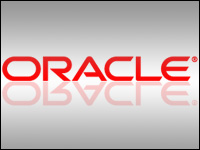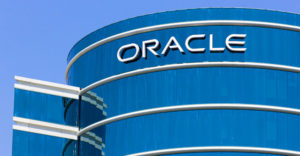
Oracle has reached an agreement to buy Skywire, a firm that makes software for the insurance business, as the database and applications giant continues to build out its menu of industry-specific tools.
The purchase of Skywire marks the second consecutive acquisition in the insurance space for the voracious Oracle, following May’s purchase of AdminServer, which makes insurance policy administration software.
Oracle already has a strong foothold in the insurance space, with its database products and applications used by some 1,000 companies, including all of the 20 largest worldwide insurers, the company said. Many of those customers came into the fold when Oracle acquired Siebel Systems.
Financial terms of the Skywire acquisition were not disclosed. Oracle expects the deal to close by the end of the year.
Complex Business Environment
Because it is regulated, the insurance industry may be especially ripe for a comprehensive suite of products that touches all aspects of a company’s data.
“Insurance is a strategic industry for Oracle, with growth focused on integrated packaged applications,” said Oracle President Charles Phillips, who added that the company’s lineup of products will enable insurers to “navigate an increasingly complex business environment.”
Oracle shares were down just a fraction of a percent in late morning trading Monday to US$22.04.
Strategic Fit
Skywire is based in Frisco, Texas, with offices across the U.S., Canada and Europe. The company has about 1,450 customers around the world, while Oracle has around 1,000 customers in the same space.
Skywire’s main products help insurers manage the life cycle of an insurance policy, with programs to help create and customize policies, rate risk and set premiums, manage interactions among brokers and agents and share information with partners.
By connecting those tools to its own database and middleware solutions, Oracle believes it can offer a comprehensive industry-specific solution to insurers.
A New Market
The purchases of AdminServer and Skywire demonstrate a commitment to the insurance sector by Oracle, said Gartner analyst Kimberly Harris-Ferrante.
“Although Oracle has been slowly building its insurance assets, it has relied mainly on intellectual property attained in the Siebel and PeopleSoft deals,” she told CRM Buyer.
The policy-management tools move Oracle into a new market, one at the core of the insurance industry, and the two purchases should complement one another and the existing products in the Oracle family.
As is often the case, Oracle’s moves may spur additional interest in the sector, in the form of either acquisitions or venture capital investments in younger startups in the space, Harris-Ferrante added.
Oracle did not specify whether it would retain Skywire’s employees or keep its offices open after the deal closes.
Big Plans
Oracle’s host of smaller acquisitions have received less attention than its blockbuster buys, which include PeopleSoft, Siebel and, most recently, BEA, which it bought earlier this year.
However, the small buys are key to Oracle’s vertical strategy, through which it plans to create customized solutions for several key industries, including financial services — which includes insurance — as well as healthcare, retail and communications.
By purchasing those smaller firms, Oracle makes it more likely the products will find traction among larger global companies, which are less likely to take a risk on a smaller software firm, Ovum analyst David Mitchell told CRM Buyer.
Setting Up a Battle
Oracle is also counting on the vertical focus to help it smooth out the peaks and valleys in its business caused by worldwide economic shifts, Mitchell said. For instance, Oracle’s most recent earnings showed signs of business weakness in the financial services sector and other key customer segments.
Like Oracle, IBM has aimed for vertical dominance in key industries, and the two are seeking to sell to many of the same sectors and customers, with many of the same types of products and services, including middleware that connects to database and storage products.
Even though the third quarter was not as strong as some earlier results, Oracle continues to perform well, said Mitchell. “With BEA on board, Oracle is taking aim at IBM, and IBM has a mirror-image strategy that involves small acquisitions to round out product portfolios. That sets up quite a battle.”


















































